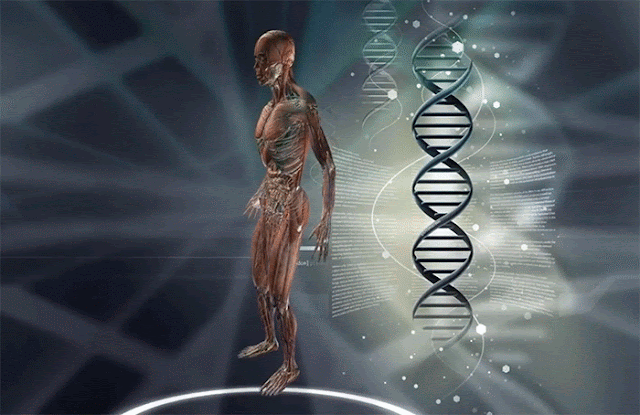Με κοινή ανακοίνωσή τους, εξέχοντες επιστήμονες και γιατροί από τις ΗΠΑ κρούουν τον κώδωνα του κινδύνου για τις τοξικές χημικές ουσίες, που "σπέρνουν" αλόγιστα οι άνθρωποι στον αέρα, στο νερό και στις τροφές και αποτελούν μεγάλο κίνδυνο για την ανάπτυξη του εγκεφάλου των παιδιών, ιδίως αυτών που κυοφορούνται.
Η επιστημονική ομάδα, γνωστή με το όνομα TENDR
(Targeting Environmental Neuro-Developmental Risks), που έκανε τη
σχετική δημοσίευση στο περιοδικό περιβαλλοντικής υγείας «Environmental
Health Perspectives», ζητά την ανάληψη άμεσης δράσης, προκειμένου να ανακοπεί η έκθεση των σημερινών παιδιών και των επόμενων γενεών
στα επικίνδυνα και τοξικά χημικά που έχουν διασπαρεί στο περιβάλλον. Από αυτά, εξαιρετικά επικίνδυνα
θεωρούνται τα οργανοφωσφορικά παρασιτοκτόνα για τα φυτά, οι
πολυβρωμοδιφαινυλαιθέρες (PBDE), οι φθαλικές ενώσεις, οι ρυπαντές που
σχετίζονται με τις καύσεις (πολυκυκλικοί αρωματικοί υδρογονάνθρακες,
οξείδια αζώτου, σωματίδια), ο μόλυβδος, ο υδράργυρος και τα
πολυχλωριωμένα διφαινύλια (PCB).
Από την επιστημονική αυτή έρευνα προκύπτει ξεκάθαρα ότι τα τοξικά χημικά
βλάπτουν την ανάπτυξη του εγκεφάλου των παιδιών μας. Έτσι σύμφωνα με τους 48 κορυφαίους Αμερικανούς
επιστήμονες που υπογράφουν την έρευνα, ακόμη και υπερβολικά χαμηλά
επίπεδα έκθεσης σε ορισμένα από αυτά τα τοξικά χημικά μπορεί να επιδράσουν αρνητικά στον
υπό ανάπτυξη εγκέφαλο. Σημειωτέον, ότι κατά τους επιστήμονες αυτά
τα χημικά είναι διάσπαρτα, όχι μόνο στον αέρα και στο νερό, αλλά και στα
καθημερινά καταναλωτικά προϊόντα που χρησιμοποιούμε
στα σπίτια μας.
Ας λάβουμε υπ' όψην μας ότι, δεδομένου αυτού του μεγάλου κινδύνου που αντιμετωπίζουμε με την μόλυνση του περιβάλλοντος, ένα εξαιρετικό εργαλείο αποτοξίνωσης, για μας και τα παιδιά μας, είναι ο βιοσυντονισμός, με τα ειδικά προγράμματα που διαθέτει για όλες τις σχετικές περιπτώσεις.
Δείτε παρακάτω και την σχετική δημοσίευση:
Ας λάβουμε υπ' όψην μας ότι, δεδομένου αυτού του μεγάλου κινδύνου που αντιμετωπίζουμε με την μόλυνση του περιβάλλοντος, ένα εξαιρετικό εργαλείο αποτοξίνωσης, για μας και τα παιδιά μας, είναι ο βιοσυντονισμός, με τα ειδικά προγράμματα που διαθέτει για όλες τις σχετικές περιπτώσεις.
Δείτε παρακάτω και την σχετική δημοσίευση:
Project TENDR: Targeting Environmental Neuro-Developmental Risks. The TENDR Consensus Statement
 PDF Version (181 KB)
PDF Version (181 KB)- SUMMARY: Children in America today are at an unacceptably high risk of developing neurodevelopmental disorders that affect the brain and nervous system including autism, attention deficit hyperactivity disorder, intellectual disabilities, and other learning and behavioral disabilities. These are complex disorders with multiple causes—genetic, social, and environmental. The contribution of toxic chemicals to these disorders can be prevented. APPROACH: Leading scientific and medical experts, along with children’s health advocates, came together in 2015 under the auspices of Project TENDR: Targeting Environmental Neuro-Developmental Risks to issue a call to action to reduce widespread exposures to chemicals that interfere with fetal and children’s brain development. Based on the available scientific evidence, the TENDR authors have identified prime examples of toxic chemicals and pollutants that increase children’s risks for neurodevelopmental disorders. These include chemicals that are used extensively in consumer products and that have become widespread in the environment. Some are chemicals to which children and pregnant women are regularly exposed, and they are detected in the bodies of virtually all Americans in national surveys conducted by the U.S. Centers for Disease Control and Prevention. The vast majority of chemicals in industrial and consumer products undergo almost no testing for developmental neurotoxicity or other health effects. CONCLUSION: Based on these findings, we assert that the current system in the United States for evaluating scientific evidence and making health-based decisions about environmental chemicals is fundamentally broken. To help reduce the unacceptably high prevalence of neurodevelopmental disorders in our children, we must eliminate or significantly reduce exposures to chemicals that contribute to these conditions. We must adopt a new framework for assessing chemicals that have the potential to disrupt brain development and prevent the use of those that may pose a risk. This consensus statement lays the foundation for developing recommendations to monitor, assess, and reduce exposures to neurotoxic chemicals. These measures are urgently needed if we are to protect healthy brain development so that current and future generations can reach their fullest potential.
A Call to Action
The
TENDR Consensus Statement is a call to action to reduce exposures to
toxic chemicals that can contribute to the prevalence of
neurodevelopmental disabilities in America’s children. The TENDR authors
agree that widespread exposures to toxic chemicals in our air, water,
food, soil, and consumer products can increase the risks for cognitive,
behavioral, or social impairment, as well as specific neurodevelopmental
disorders such as autism and attention deficit hyperactivity disorder
(ADHD) (Di Renzo et al. 2015; Gore et al. 2015; Lanphear 2015; Council on Environmental Health 2011).
This preventable threat results from a failure of our industrial and
consumer markets and regulatory systems to protect the developing brain
from toxic chemicals. To lower children’s risks for developing
neurodevelopmental disorders, policies and actions are urgently needed
to eliminate or significantly reduce exposures to these chemicals.
Further, if we are to protect children, we must overhaul how government
agencies and business assess risks to human health from chemical
exposures, how chemicals in commerce are regulated, and how scientific
evidence informs decision making by government and the private sector.





































0 σχόλια:
Δημοσίευση σχολίου